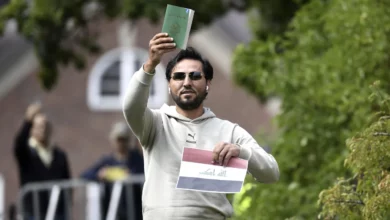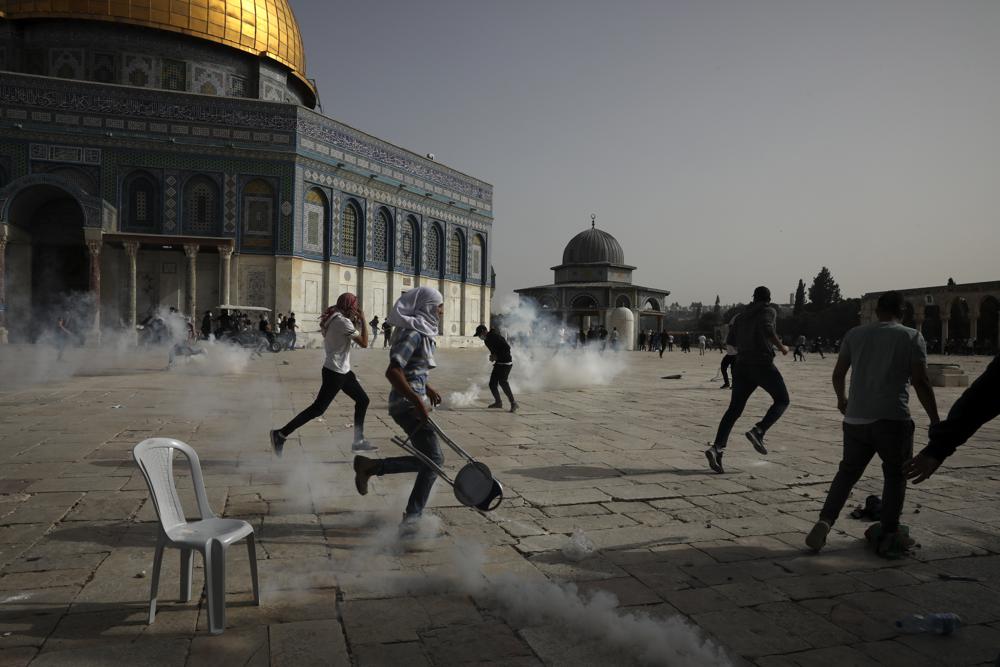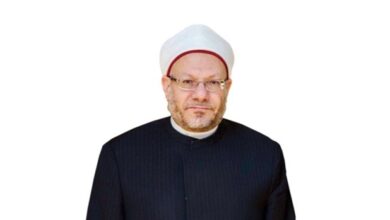In an interview with Al-Masry Al-Youm, Dominique Vorgler, the Swiss ambassador in Cairo, spoke about the Swiss ban on building minarets, how it all came about, and what it signifies for the Muslim world.
Al-Masry Al-Youm: What is the real story behind the minarets ban? How did it start?
Dominique Vorgler: I should begin by saying that the issue is far bigger than minarets. The whole thing started in a tiny village in Switzerland, when villagers wanted to build a minaret for the local prayer house and give it the typical appearance of a mosque. The municipal authorities rejected the request under the pretext that it would not fit the architectural design of the region. So the issue related merely to construction laws – and the same applies to church towers.
[…] The authorities refused the request due to pressure from the locals, but Muslim villagers challenged the order. The judge accepted their claim and allowed the minaret to be built. But those objecting to the building argued that the judge had no right to approve or disapprove the decision, and decided to rely on the constitution, which allows initiatives to be taken in order to reach a resolution.
Al-Masry: What do you mean by ‘initiative’?
Vorgler: I mean a referendum. It starts as an initiative by a group of people, is then submitted to the parliament, and thus becomes a referendum. They used this method, through collecting about 100,000 signatures, which is legally enough to amend certain articles of the constitution or add new ones. […] The government was supposed to approve the vote. But both the government and the parliament rejected it.
Al-Masry: Why didn’t the government issue a decree bringing the controversy to an end?
Vorgler: This was theoretically possible, not through the government, but through the parliament, which can decide that a certain issue is not suitable for polling for humanitarian reasons. A number of MPs said that a ban would show disrespect and discrimination against others’ beliefs, while others thought that standing against the vote would reflect an anti-democratic stance, and that an official rejection of the referendum may suggest that the government and the parliament totally disregard the public will. When the proposal was submitted, both were aware that the people would vote against the building of minarets.
Al-Masry: Switzerland has always been a model of democracy, multilateralism, and welcoming to others, but the recent controversy destroys this image – what do you say?
Vorgler: I see that danger too. We are all disappointed, but at the same time we respect the law. Democracy in other countries is a word that signifies an idea, but in Switzerland it is of a more direct nature. All over the world, decisions are taken by presidents or parliaments, but in Switzerland the decisions come from the people.
Al-Masry: Do you expect troubles with the Arab and Islamic World?
Vorgler: Yes. There have been some protests and I totally understand why they occurred. I hope we can provide an explanation and engage in a dialogue to assure the Muslim world that the vote was not aimed against Islam in particular. This dialogue should take place not only amongst the elite. […] I told Amr Moussa, secretary general of the Arab League, and Mohamed Sayyed Tantawy, Grand Sheikh of Al-Azhar, that we have failed to conduct the dialogue between the common people and rather only focused on an official level, a major mistake. They both agreed, and I admit there is misunderstanding in Egypt and Switzerland over this issue.
Al-Masry: But Moussa called for the matter to be referred to a human rights court?
Vorgler: That is possible, and Moussa discussed it with me. [..] I can say, with 100 percent confidence, that we will resort to international law. There has been a new request to build a minaret that will be submitted to a Swiss judge, and if the request is turned down, international law will be the solution. [… They] will eventually approach the European Court of Human Rights in Strasbourg.
Al-Masry: There are 400,000 Muslims in Switzerland. What is their situation in light of the recent incident?
Vorgler: Most of those Muslims are Swiss citizens, and I can say that their position is fine. I myself lived in a village where there were a lot of Muslims. They came from the Balkans. I can confidently say that 99 percent of them have no problems. They are decent people and respected by their country. There are some exceptions, which may have been the source of some problems.
Al-Masry: Several British papers severely criticized your country. The Swedish justice minister said, "We cannot establish a new Europe without the freedom of expression." Do you wish to comment?
Vorgler: I understand that there have been many reactions and I am not surprised. I think many states suffer the same problem as Switzerland. Unfortunately, some groups praised us for the vote, but I am not happy with it. The reaction of these groups might be the real reason behind the criticism coming from some governments.
Al-Masry: There are calls to boycott Swiss products. How are you going to handle that?
Vorgler: I heard about that and I do not know whether anything has happened so far. I cannot predict what the official reaction of the Swiss government will be.
Al-Masry: What about Swiss businessmen whose interests are tied to Arab and Islamic states?
Vorgler: We advise them to go on with their work. There are no signs that they have been subject to any measures or embargoes or anything of that kind.
Al-Masry: Are you wary of the Islamization of Europe?
Vorgler: I have no such kind of fear, but there are concerns about the rising numbers of those immigrating to Switzerland. The Swiss are concerned about their jobs. […] We have no problem with the religion of Islam, but there are some Muslims who are unable to integrate into society. A very small sector is reluctant to obey Swiss law, and another very small group wants to apply the Sharia [Islamic legislation].
The problem is not confined to Switzerland, but expands to the rest of the continent. I read in a French-speaking paper that 75 percent of its readers want a similar ban in France. […] Misunderstanding is also found in Arab and Islamic states against non-Muslim or Christian minorities. This lack of understanding results from ignorance of the values of these religions. We have to get down to a dialogue on the lowest popular levels.
Al-Masry: Some say that the clash of civilizations started in France and then Switzerland. The same was said by Samuel Huntington… What is your response?
Vorgler: I cannot describe what happened as a clash. We shouldn’t forget that 23 percent of the population in Switzerland is foreign, which is a very high amount. Imagine 20,000 foreigners coming to Egypt: sure there will be some friction. My country has got used to this diversity in its population and has benefited from it. I consider it a challenge to confront the problem, and we always succeed in meeting that challenge.
I’d like to repeat that the reason for the dilemma is the increase in the number of Muslims. There were 50,000 of them and now they number 400,000. The "No" vote was aimed at political Islam, the application of Sharia, and the circumcision of females. Our laws must be respected.
Al-Masry: Why don’t you take the example of the French government, which banned all religious symbols in general?
Vorgler: There are people who choose minarets as a religious symbol, and there also those who choose the hijab. We should note that 95 percent of the Muslims in Switzerland came from the Balkans and most of their women do not wear the hijab: the number of those wearing the hijab is less than those in France, and this might be the reason why they paid more attention to minarets. I must repeat that Europe has nothing against Islam, and as evidence of that are all the migrants from Bosnia and Kosovo who came to the country with Islam as their religion. We have no problem with Muslims, we just hope they will integrate into society and respect our laws.
Al-Masry: What action will the Swiss government take in the next period?
Vorgler: We will pay greater attention to providing information and explaining what happened, through diplomatic missions in Islamic states, including myself. The last thing to be done is to open channels of discourse between different sectors of Swiss society.




